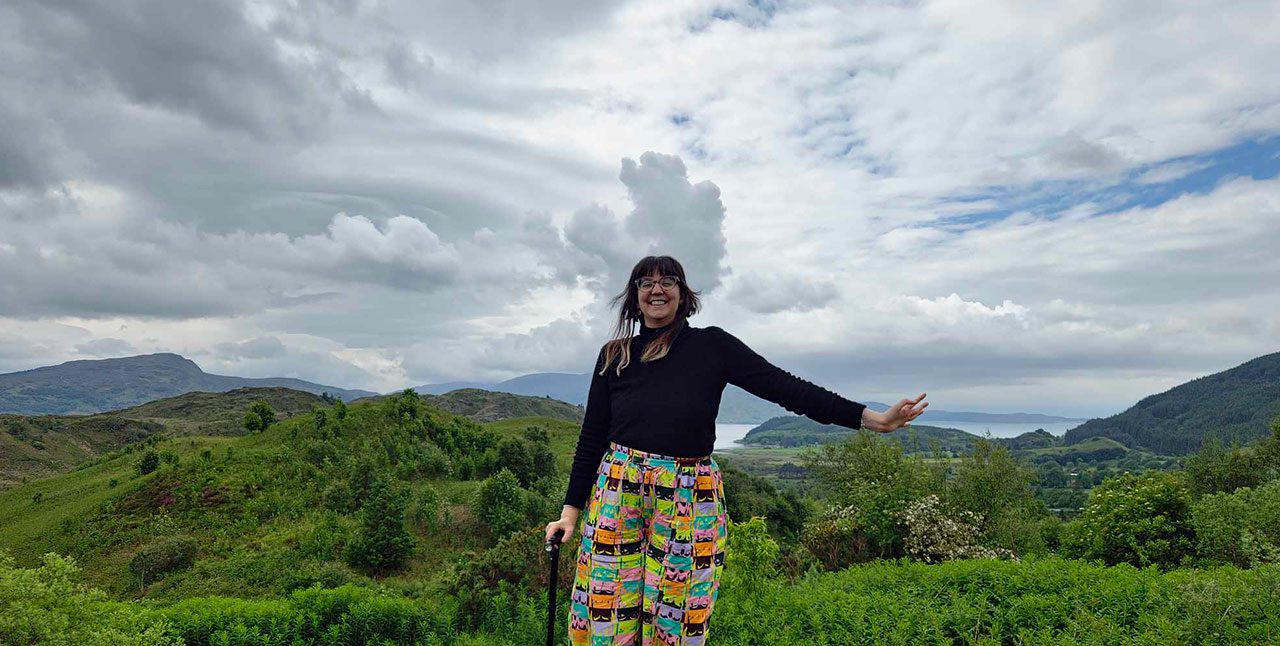Do you dream of designing sustainable cities, discovering medical breakthroughs, preserving cultural heritage or shaping the future of technology?
A Higher Degree by Research (HDR) at Curtin is more than just a qualification – it’s an opportunity to explore your passion in depth and make bold and innovative discoveries. At Curtin, you’ll be supported to go beyond the expected and turn your research into practical outcomes that are valued by academia, industry and society.
What’s the difference between a PhD, Master of Research and Master by Coursework?
Fund your research with an RTP Scholarship
Join Australia’s brightest research minds
Ranked in the top 1% of universities worldwide (ARWU 2024), Curtin is globally recognised for high-impact research across a wide range of fields including:
- 🖤 Aboriginal and Torres Strait Islander knowledge
- 🌱 Agriculture and environment
- 🧬 Biomedical and clinical science
- 🤖 Data science, machine learning and AI
- 🏥 Healthy communities
- 🛡️ National resilience and security
- ⛏️ Resources, mining and critical minerals
- 🚀 Space
- 🏗️ Structural engineering and monitoring
- 🔋 Sustainability and energy transition
🎧 Listen in: Hear Curtin PhD student Anthony Clarke and Professor Chris Kirkland discuss their remarkable discovery about Stonehenge’s Altar Stone.
Shape your future through research
Our HDR students work on projects that matter – across health, business, science, technology, social change, environment, education and the arts.
As a Curtin HDR candidate, you’ll gain access to cutting-edge facilities, world-class supervisors, and a vibrant, supportive research community.
You might be:
Wherever your research takes you – into a lab, on Country, at a hospital, in an archive, or onto the global stage – you’ll build deep expertise, collaborate across disciplines, and contribute to projects that make a real impact.
From electrical engineering to neurosurgical innovation
For Curtin PhD candidate Essam Morsy, studying electronics and electrical engineering has opened unexpected doors.
While developing a microwave absorber with the Curtin Institute of Radio Astronomy, Essam discovered new challenges – and opportunities – through an industry internship at Neurospheric, a startup focused on brain tumour treatment.
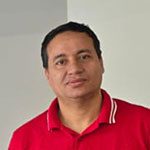
“My internship has introduced me to the new and equally challenging field of neurosurgical devices, where I’ve been able to apply my technical expertise in a real-world medical setting. For any PhD student considering an industry internship, I highly recommend it. This incredible experience has strengthened my problem-solving skills, expanded my professional network… and given me the confidence to apply my knowledge to real-world challenges.”
What’s the difference between a PhD, Master of Research and Master by Coursework?
If you’re thinking about continuing your studies, you might be wondering what kind of postgraduate degree is right for you.
Here’s a quick guide to the most common research pathways:
🎓 Doctor of Philosophy (PhD)
A PhD is ideal if you want to make a significant original contribution to knowledge in your field. This degree typically takes three to four years full time to complete (or longer if studied part time). You’ll undertake independent research under the guidance of expert supervisors and produce a substantial thesis. Entry usually requires a Master by Research or a bachelor degree with first or upper-second class honours.
📘 Master of Research
A Master by Research is a great stepping stone into academic or research careers, or as preparation for a PhD. Typically completed over two years full time, this degree is largely research-based and supervised, similar to a PhD, but it involves a shorter final thesis. It’s a great option if you’ve completed a bachelor degree – often with honours – or have relevant professional experience.
📚 Master by Coursework
A Master by Coursework is quite different from a research degree – it’s more structured and designed to deepen your knowledge and skills in a specific professional area. You’ll complete a set of units or subjects, similar to undergraduate study, and while some degrees may include a research component or final project, the focus is not on independent research. This pathway is ideal if you’re looking to advance in your current career, upskill, or switch to a new field.
Explore our postgraduate by coursework degrees
Interested in exploring your options further? Discover all our research degrees – including our collaborative PhD program and Doctor of Business Administration – and find the pathway that’s right for you.
Your experience matters
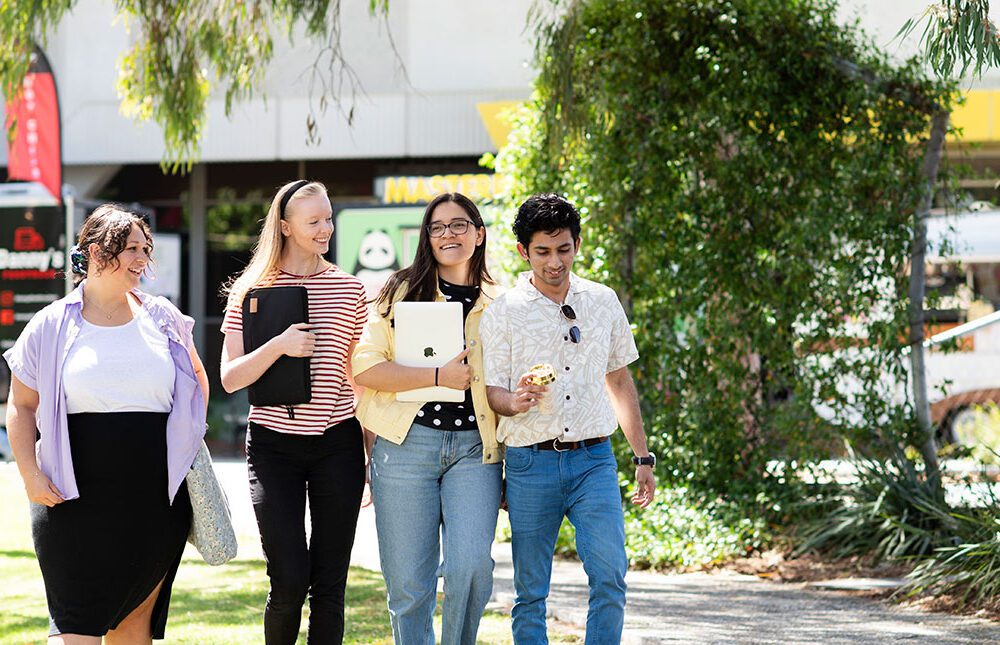
At Curtin, we’re keen to work with people from all walks of life. Our HDR community comprises engineers, educators, artists, scientists, community leaders, and entrepreneurs – united by a drive to create meaningful change. From shaping policy on climate resilience and launching biotech startups, to advancing First Nations health initiatives and contributing to space exploration, our researchers are making an impact across diverse fields.
Hear from public health PhD student Liyuwork Dana who is developing an index to map the location and extent of food insecurity among Australian households:
Meanwhile, researcher and proud Arabana woman Dr Teagan Shields is helping lay the groundwork for a legacy where Indigenous knowledge is integral to environmental policy and practice.
“There’s this assumption that Western science alone holds all the answers, but Indigenous people and knowledge have been caring for Country for thousands of years. Our knowledge has stood the test of time and it shouldn’t need to be validated through a Western lens to be taken seriously. That’s what I’m hoping to achieve through my research.”
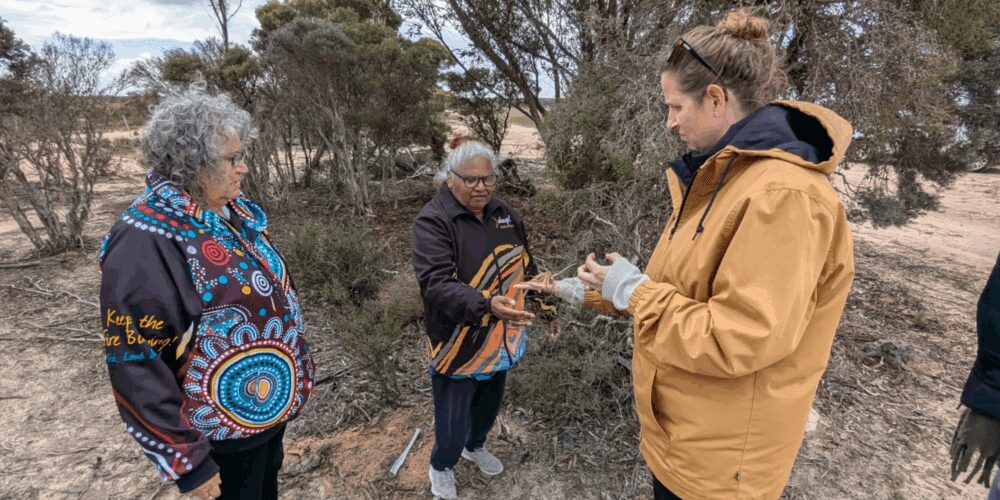
Make a global impact
Our research degrees offer you opportunities to engage with real-world challenges, both in Australia and abroad. By working closely with our industry partners and startups, you ‘ll have the chance to conduct research that addresses pressing local and global issues and gain invaluable practical experience.
Clinical and academic pharmacist Dr Mustafa Atee is a co-inventor of PainChek, an AI-assisted pain assessment tool that evaluates the presence and intensity of pain in non-verbal adults. PainChek was the result of his PhD research at Curtin where he explored improving pain management among patients with dementia. The tool is now widely used in healthcare and has facilitated more than 10 million clinical assessments in aged care, across more than 1,800 facilities worldwide.
Melissa Papini, a Curtin and Perron Institute PhD candidate is exploring brain injury and mental health through her laboratory work and internship with mental health clinic Sherpah. She says the internship has given her unique business insights and the chance to present her work to industry professionals in Australia and London.

“One of the highlights of my internship at Sherpah was being selected to write an abstract based on our work for the Clinical TMS Society Annual Meeting. I was fortunate enough to be chosen to present this abstract at a conference in London which was incredibly rewarding and has further fuelled my passion for research in this field.
I’ve also had the opportunity to present my research findings to nurses, clinicians, and allied health professionals at the mental health unit in Fremantle Hospital. This experience has allowed me to receive valuable feedback and insights from those working directly in the field. I’ve connected with clinicians interested in both my internship research and also the work I am doing for my PhD.”
Curtin HDR student Jordan Fyfe is researching disability in the arts. Supported by a Curtin HDR Internship, she chose to head overseas to work at the Glasgow Women’s Library, using co-design with disabled artists to build community.
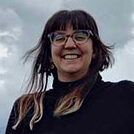
“My internship has been incredibly varied … [it] has opened my eyes to the possibilities of future work in my field. I have been involved in many small projects as well as a few longer-term projects. Although I have had some outcomes, the aim of the internship was not to produce outcomes but instead to immerse myself in the day-to-day experience of working with an activism-focused organisation.”
Support to help you succeed
At Curtin, we’re here to help you achieve your goals. We can work with you to help you balance your work, life and internship commitments.
Melissa describes how she balances her PhD research alongside her internship:

“After meeting with the team at Sherpah and my [Curtin] PhD supervisors, we decided upon a flexible arrangement in which some weeks I would work for two to three days on my internship and other weeks I would work solely on internship work or my PhD, depending on the commitments required by each. This flexibility meant that I was able to balance my workload while still progressing in both endeavours.”
Alongside the flexibility to balance your research with other commitments, Curtin also offers a range of scholarships, including the Research Training Program Scholarship, to help financially support your goals.
Fund your research with an RTP Scholarship
Curtin PhD candidate Ashley Rogers said receiving the Australian-Government funded RTP Scholarship has made a big difference.
“Receiving the RTP scholarship was a wonderful feeling as I was not sure how I would be able to support myself during my PhD. Having the stipend (along with the additional funds from my research group) has enabled me to live a comfortable life within the first year and a half of my PhD.”
If you’ve been thinking about pursuing a career in research, applications for Research Training Program Scholarships are now open. You’ll need to submit your application by 18 August 2025.
These competitive scholarships provide:
- tuition-fee support
- a tax-free stipend to support your living costs
- access to training, development, and research support resources.
The table below details the current and past stipend rates:

RTP Scholarships are available for a minimum of three years and up to four years if you’re studying full-time, or between six and eight years if you’re studying part-time.
If you’re enrolling in a research master’s degree, RTP scholarships can support you for up to two years full-time or up to four years if you choose to study part-time.*
*Please note: eligibility criteria applies.
How to apply

There are two different ways to apply for an RTP scholarship at Curtin:
✅ Apply for an approved HDR project
Curtin offers a broad range of HDR project opportunities aligned to national priorities and global needs. This is a great pathway if you’re looking to contribute to existing high-impact research.
Browse all available HDR projects
✅ Submit your own research idea
If you have your own burning idea, based on your professional interests, previous study or personal passion, connect with one of our researchers to support your application for an RTP scholarship.
Whichever path you choose, our friendly team at the Graduate Research School can help guide you through the process.
Email: roc.grs@curtin.edu.au
Ready to start your research career?
RTP Scholarships are only open for a limited time until 18 August 2025. If you’re excited to bring your research to life, don’t miss your chance to apply.
